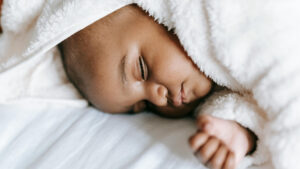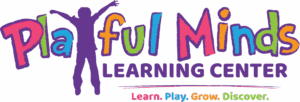Tiny Coughs, Big Care: RSV Prevention Tips Every Parent Should Know
 Every fall and winter, sniffles and coughs become part of the season—but for our littlest learners, those tiny coughs can sometimes signal something more serious: respiratory syncytial virus, or RSV. We explain more below, including tips for RSV prevention.
Every fall and winter, sniffles and coughs become part of the season—but for our littlest learners, those tiny coughs can sometimes signal something more serious: respiratory syncytial virus, or RSV. We explain more below, including tips for RSV prevention.
What Is RSV?
RSV is a common respiratory illness that affects nearly all children by the age of two. It spreads easily, especially in group settings like schools or learning centers, and can lead to more serious conditions in infants and toddlers, such as bronchiolitis or pneumonia. Babies under six months, children with weakened immune systems, and those with underlying conditions are especially at risk.
So how can parents spot RSV? It often starts like a cold—with a runny nose, cough, low-grade fever and sneezing. In more serious cases, it may cause wheezing, trouble breathing or reduced appetite. If your child shows signs of difficulty breathing, dehydration or a high fever, it’s time to call your pediatrician, as RSV can be dangerous.
RSV Prevention: How to Do Your Part
The good news is, there’s plenty we can do to help prevent the spread of RSV at home, school and in our centers:
- Make handwashing a habit. Turn handwashing into a fun routine—sing songs or use silly timers to encourage thorough scrubbing with soap for at least 20 seconds.
- Clean and sanitize often. Wipe down toys, tables and high-touch surfaces daily.
- Catch that cough. Teach kids to cough or sneeze into their elbow or a tissue, toss tissues right away and then wash their hands.
- Share this article with another parent this season—and let’s spread awareness, not germs!
Knowing when to keep your child home can make a big difference. Children should stay home if they have a fever, persistent cough, difficulty breathing or other flu-like symptoms.
Call your Playful Minds Center if you have any questions about whether it’s best to keep your child at home. Keeping one child home helps protect many others—and gives your little one the rest they need to recover.
Happy, Healthy Kids Are Our Goal
At Playful Minds, your child’s health is always a top priority. We follow strict cleaning protocols, maintain open communication with families and monitor children for symptoms daily. By working together, we can keep our classrooms safer and healthier.
Thank you for being a part of our playful, caring community. With a little teamwork and a lot of love, we can help every child stay well this season.
